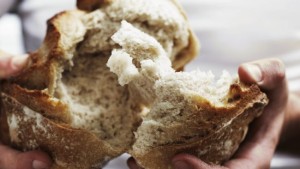A. J. Liebling famously said, “Freedom of the press is guaranteed only to those who own one.”
 I cited that when I started the other newspaper at the University of Guelph in 1988, and I’ll say it now on my barfblog, as I shamelessly promote my wife and her book, Remembering French Algeria: Pieds-Noirs, Identity and Exile (Lincoln: U of Nebraska P, 2015).
I cited that when I started the other newspaper at the University of Guelph in 1988, and I’ll say it now on my barfblog, as I shamelessly promote my wife and her book, Remembering French Algeria: Pieds-Noirs, Identity and Exile (Lincoln: U of Nebraska P, 2015).
“This is a thoughtful and thought-provoking study that contains remarkable insights. Remembering French Algeria makes an important contribution to current scholarship on postcolonial relations between France and Algeria and fills an important gap in that scholarship by focusing specifically on the oft-overlooked category of the community of Pieds-Noirs.”—Alison Rice, author of Time Signatures: Contextualizing Contemporary Francophone Autobiographical Writing from the Maghreb
Colonized by the French in 1830, Algeria was an important French settler colony that, unlike its neighbors, endured a lengthy and brutal war for independence from 1954 to 1962. The nearly one million Pieds-Noirs (literally “black-feet”) were former French citizens of Algeria who suffered a traumatic departure from their homes and discrimination upon arrival in France. In response, the once heterogeneous group unified as a community as it struggled to maintain an identity and keep the memory of colonial Algeria alive.
 Remembering French Algeria examines the written and visual re-creation of Algeria by the former French citizens of Algeria from 1962 to the present. By detailing the preservation and transmission of memory prompted by this traumatic experience, Amy L. Hubbell demonstrates how colonial identity is encountered, reworked, and sustained in Pied-Noir literature and film, with the device of repetition functioning in these literary and visual texts to create a unified and nostalgic version of the past. At the same time, however, the Pieds-Noirs’ compulsion to return compromises these efforts. Taking Albert Camus’s Le Mythe de Sisyphe and his subsequent essays on ruins as a metaphor for Pied-Noir identity, this book studies autobiographical accounts by Marie Cardinal, Jacques Derrida, Hélène Cixous, and Leïla Sebbar, as well as lesser-known Algerian-born French citizens, to analyze movement as a destabilizing and productive approach to the past.
Remembering French Algeria examines the written and visual re-creation of Algeria by the former French citizens of Algeria from 1962 to the present. By detailing the preservation and transmission of memory prompted by this traumatic experience, Amy L. Hubbell demonstrates how colonial identity is encountered, reworked, and sustained in Pied-Noir literature and film, with the device of repetition functioning in these literary and visual texts to create a unified and nostalgic version of the past. At the same time, however, the Pieds-Noirs’ compulsion to return compromises these efforts. Taking Albert Camus’s Le Mythe de Sisyphe and his subsequent essays on ruins as a metaphor for Pied-Noir identity, this book studies autobiographical accounts by Marie Cardinal, Jacques Derrida, Hélène Cixous, and Leïla Sebbar, as well as lesser-known Algerian-born French citizens, to analyze movement as a destabilizing and productive approach to the past.
(And yes, our cats are named Jacques – the white one — and Cixous.)
Amy L. Hubbell is a lecturer in French at the University of Queensland. She is the co-editor of Textual and Visual Selves: Photography, Film, and Comic Art in French Autobiography (Nebraska, 2011) and The Unspeakable: Representations of Trauma in Francophone Literature and Art (Cambridge Scholars, 2013).









